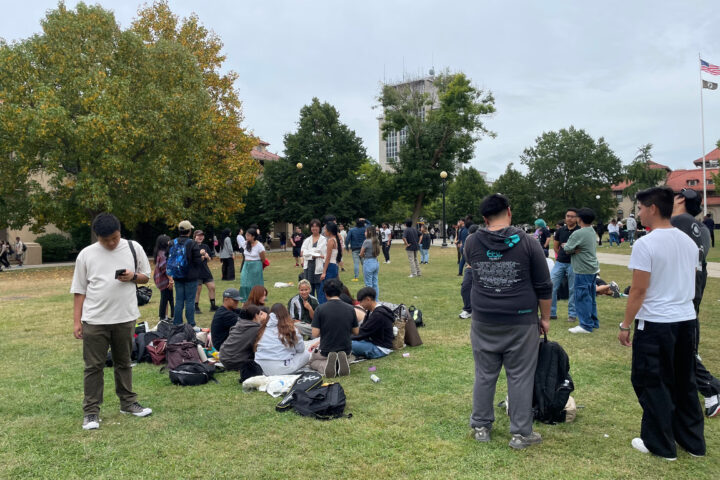Many young people in the United States face unique challenges in the classroom, but for Queens College student Lorena Carino, her problems seem to follow her wherever she goes.
Carino, a 19-year-old sophomore, represents one of the millions of undocumented immigrants who enter the U.S. with the hopes of gaining an education and finding a job to make a living for themselves.
“My parents came to the U.S. because — like everyone, they wanted a better life for my sister and I. Since in Mexico it was hard to have a good life economically — everything is more expensive and harder to work for in my country,” the vice president of the QC DREAM Team, Carino said.
Carino is not only concerned about her education but for her younger sister, who is in her first year of high school, as well as the rest of her family who came to the U.S. 10 years ago from Mexico City.
“I don’t want [my sister] to go through what I went through,” Carino said.
The QC DREAM Team is a club on campus comprised of DREAM Act supporters, the federal bill that gained widespread attention in 2010. It allows the current, former and future undocumented high school graduates and GED recipients a way to obtain U.S. citizenship either through college or the armed services.
According to the American Immigration Council, an undocumented high school graduate or GED recipient would be eligible to adjust to a conditional lawful permanent resident status if they have been physically present in the U.S. for at least five years and were younger than 16 when they first entered the country.
However, this status would be awarded on a provisional basis and valid for six years. During this time the person would be allowed to work, go to school or join the military.
Once the student has completed two years in a program for a bachelor’s degree or higher degree and if discharged from military service, the conditional status would be removed and the person is granted LPR status
Under the DREAM Act, students are not eligible for federal education grants, but are eligible for federal work study and student loans. In addition, individual states are not restricted from providing financial aid to students.
This small component regarding financial aid is what makes up the New York DREAM Act. Since the DREAM Act has been stalled in Congress, states have found a way to help the youth in all but paperwork.
“These immigrants are members of families that have worked and paid taxes in New York State and should be treated in the same way as all the high school graduates,” QC interim president Evangelos Gizis said.
Today, being an undocumented student in the U.S. means having limited access to a college education. Undocumented students cannot legally receive any federally funded student financial aid, including loans, grants, scholarships or work-study money.
Prior to Pres. James Muyskens retirement last semester, the DREAM Team asked if he could write a letter to Gov. Andrew Cuomo expressing his views on the DREAM Act.
“The students, the New York DREAM Act would help, are the students who truly get what America is all about: they know that while it’s not perfect, America is the country that still accepts anyone who is willing to work hard,” Muyskens wrote.
In most states, students who do not have green cards are not eligible for state financial aid and in only three states — Texas, New Mexico and California — is this allowed.
“It is to New York’s credit that a decade ago it became the fourth state to allow undocumented students to pay in-state tuition. Now it is time for us to join states . . . that allow their undocumented students to qualify for state financial aid,” Muyskens said.
“To close the doors to higher education by denying them financial aid would be a tragedy this country would feel for decades,” Muyskens said.
So far, the DREAM Act has been passed by the state assembly, but there is still much deliberation to be done on behalf of the senate.
“By passing the New York DREAM Act we are saying we want to stay true to the spirit of America, we want America to always be the place where young men and women can bring their hopes and strengths and ideas, receive a first rate education and build an extraordinary life,” Muyskens said.













